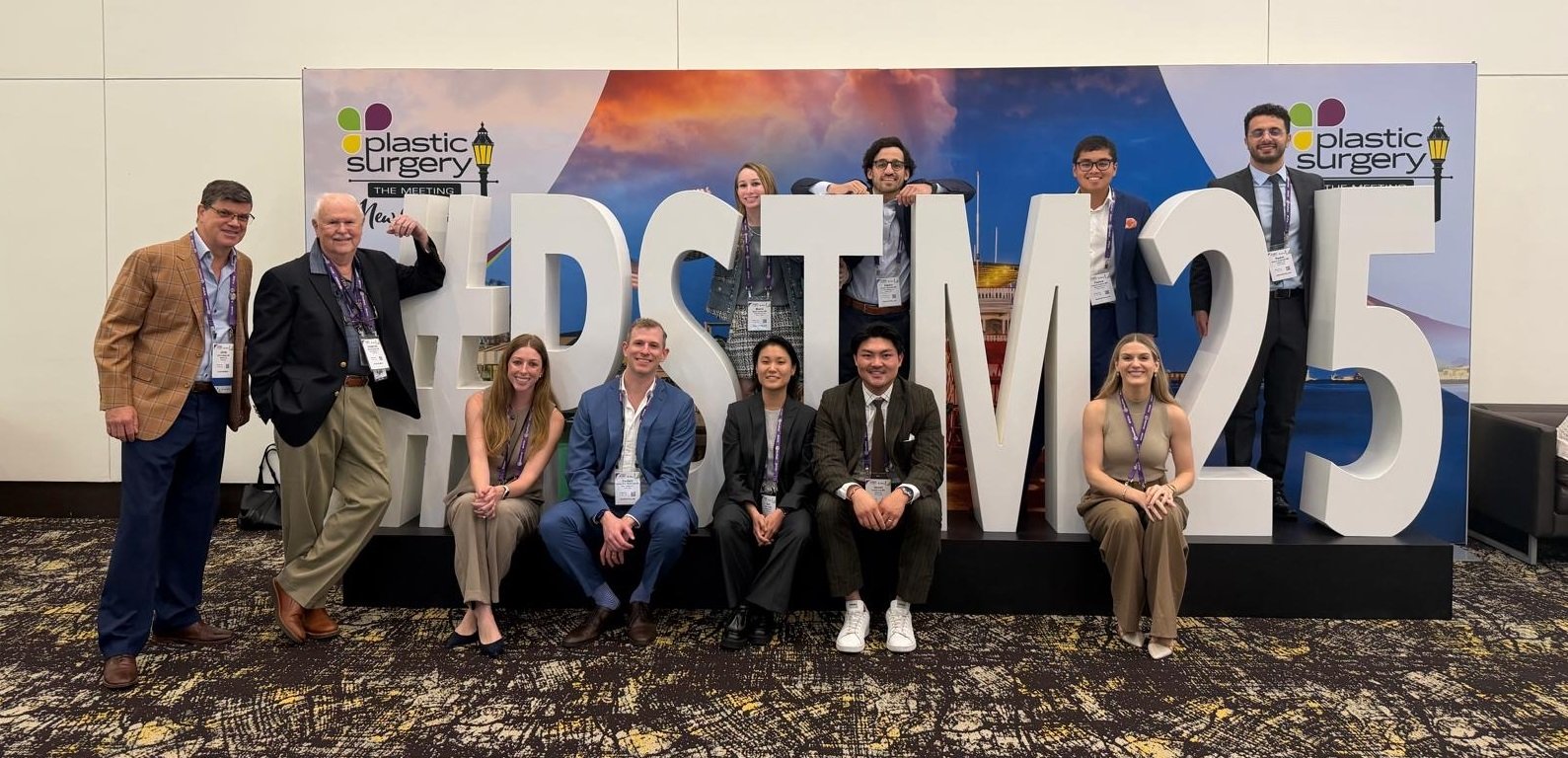Core Curriculum
Plastic Surgery training is extremely complex. Unlike some regional specialties that focus on one anatomic area or one organ structure, we are involved in surgery in many anatomical locations and organ systems. Additionally, we are a technique-based specialty which requires problem solving. Teaching surgical procedures alone is not going to prepare a young surgeon for a lifetime of practice, so we must teach principles rather than operations. In this way, the surgeon can adapt to changes in techniques and approaches over time because they have a firm grasp on the principles of surgery.
Academics AT a glance:
Weekly conference: Fridays 7-9 AM (didactic/Grand Rounds, case presentations, M&M, Mock Orals, etc.). Anatomy labs/skills workshops held during this time (and possible extended) when scheduled.
Monthly research meeting (included as part of Friday conference)
Monthly Journal clubs: Typically 6:30-9ish PM
Conferences
Our didactic program incorporates a number of interrelated efforts. Conference is typically 2 hours in duration: from 7-9 AM on Friday mornings. Some weeks, there is an additional conference on Monday afternoons at 5 PM.
Residents and staff in close relation to UMC gather in-person; those at remote sites or otherwise unable to make it in-person may Zoom in. Attendance is mandatory and residents are excused for clinical duty during conference.
Our weekly scheduled core curriculum covers the field of plastic surgery over 18 months. Each week a selected topic is presented and discussed in a variety of formats, including case presentation, landmark papers, and traditional Grand Rounds lecture-style presentations. The curriculum is interactive and incorporate questions from past In-service and written board examination. The presentations are inter-disciplinary. Faculty discuss the topic and offer advice based on years of experience.
With visiting professor: Dr. Paul Cederna, MD
Morbidity and Mortality (M&M) conference is held monthly as part of Friday conference. Residents present complications from all the different services. The emphasis is on determining the root cause of the complication and efforts to prevent recurrence: not to place blame on the individuals involved. Appropriate articles from the current literature are presented.
We also have a monthly research meeting which is an opportunity for all residents, faculty, and medical students to discuss ongoing research projects and present new ideas. As of 2025, this has been incorporated into Friday conference time to allow as many residents to be present as possible.
A monthly Journal Club is scheduled in collaboration with the Tulane University Independent Plastic Surgery Residency Program. This is typically held at an upscale restaurant and provides an opportunity for the faculty and residents to engage socially as well. Articles are presented by residents and faculty members enrich the discussion.
Several sessions of Mock Orals take place throughout the year to allow Chief-level residents the opportunity to practice and prepare for the Plastic Surgery Oral Board Exam under simulated pressure.
LSU PRS tackles PSTM 2025 in New Orleans!
An overview of various non-clinical topics essential for a career in plastic surgery, including coding and billing, health care economics / the business of private practice, relationships with industry, and contract negotiations are also integrated within the clinical curriculum.
Our visiting professor program brings in numerous visiting plastic surgeons from the American Society of Plastic Surgeons (ASPS), Plastic Surgery Foundation (PSF), American Society of Maxillofacial Surgery (ASMS), the American Society for Surgery of the Hand (ASSH), and societies from around the globe including those from Europe, Taiwan, and South Korea. Residents present relevant case presentations with our visiting professors and benefit from their esteemed input. As New Orleans is a particularly fun place to visit, many guests are more than willing to come visit in-person. As of 2025, LSU and Tulane/Ochsner have collaborated to host city-wide grand rounds for visiting professors. This collaboration has essentially doubled the number of visiting professors available to meet and educate our programs.
The New Orleans Conference Center, located within the heart of downtown New Orleans, is an ideal venue in size and location for the hosting of national medical (and non-medical conferences). Most recently, ASPS hosted Plastic Surgery: The Meeting (PSTM) 2025 in New Orleans. New Orleans will undoubtedly continue to serve as a hub for plastic surgery education, innovation, and advocacy for many years to come.


